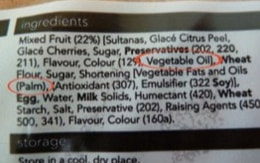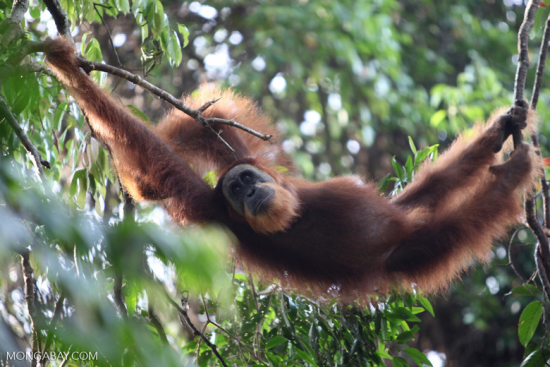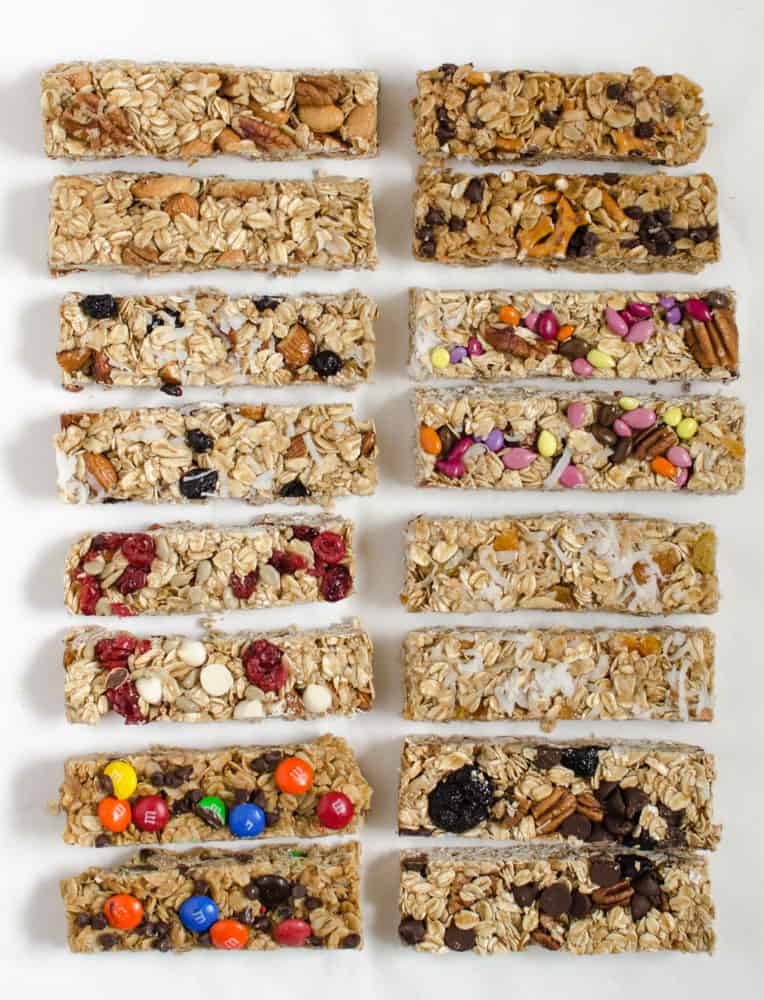The Blog |
|
Palm Oil is highly praised for it's economy and affable nature by the biggest food companies in the world- so much so, that you can find it or it's derivatives, in 50% of the products we buy. But this cheap product comes at the very high cost of habitat loss, further endangering critical species. The complex drama rivals an M. Night Shyamalan film. Click to read the transcript from the latest podcast... Here’s some background for you- Palm oil comes from the fruit of the palm tree Which is native to Indonesia & Malaysia It’s used in 50 percent of the items we buy- everything from processed foods packaged like cookies, breads, granola bars, Ice cream, to other house hold items like soap, hair products, and make up. Basically If you shop in a grocery store, it’s extremely hard to avoid. There are over 25 different names for palm oil and it’s derivatives which make it even harder to spot. There are the obvious ones that have the word palm it, like; Hydrogenated palm glycerides, Octyl palmitate, Palm fruit oil, Palm kernel, Palm stearine and Palmate. Palm oil is so popular because it has a stable shelf life, is colorless and odorless and, is cheaper then other oils to produce. It also acts as a preservative, and even slows the melting time of ice cream. In fact, that according to a Guardian article, called how the world got hooked on palm oil, “3 billion people in 150 countries use products containing palm oil. Globally, we each consume an average of 8kg of palm oil a year.” That’s 17.5 POUNDS a year- making it the most widely used vegetable oil on the planet. To give you a visual, 17 pounds is the size of a miniature poole= imagine that’s a bucket of oil you’re going to ingest. The palm oil craze began in the 90’s when the “TRANS FAT IS GOING TO KILL US ALL” thing happened and big companies had to find a cheap replacement for their new low fat products and it’s use has been climbing ever since. Between 1995 and 2015, annual production quadrupled, from 15.2m tonnes to 62.6m tonnes. By 2050, it is expected to quadruple again, reaching 240m tonnes. Since I like to look at all sides, let’s see if palm oil has any redeeming qualities! For one, once it’s established it’s incredibly efficient crop, producing more oil per land area than any other equivalent vegetable oil crop. Globally, palm oil supplies 35% of the world’s vegetable oil demand on just 10% of the land. To get the same amount of alternative oils like soybean or coconut oil you would need between 4 and 10 times more land, which would just shift the problem to other parts of the world and threaten other habitats and species. It requires less water and less pesticides too. It’s that just delightful. It’s also boosted the economy for the farmers and countries where it’s produced. endangered species – including rhinos, elephants and tigers. But in order to produce such high quantities of palm oil, these forests are burned to make way for large plantations or mono-crops of palm trees. When the land is cleared in this way, carbon is dumped into the atmosphere, creatures die in the forrest or soon after, as a result of losing their home. Here are some eye popping numbers - There are about 50,000-65,000 orangutans left in the wild in part because they’ve lost 80% of their habitat in the last 20 years. (about the amount of individuals that can fit in yankee stadium) The last of Indonesia’s sumatran tigers—have fewer than 400 and has lost half of its forests in the last 40 years, mainly due to conversion for palm oil and pulp plantations. The critically endangered Sumatran Elephant, also in Sumatra, fewer than 3,000 surviving. Bornean Pygmy Elephant, also endangered, have only 1,500 left. Somehow, it gets worse. On top of all this habitat loss, There’s also the human rights issue of indigenous people who live in these forests being removed just to make way for palm oil plantations. In Borneo, roughly 2.5 million people have been displaced since the 1970s. There are also other human rights issues at hand including hazardous conditions, extremely low wages, and child labor. Forests destroyed for oil palm plantations are among the most carbon-rich in the world. When they are burned, that carbon is released- as a result Indonesia is the 3rd largest green house gas emitters behind the US and china- this also causes smog and detrimental health effects for it’s people. Other results of the deforestation associated with new palm oil plantations include soil erosion and water pollution from the effluent of the oil With the demand growing more and more of these plantations are going in other areas with similar climates, including Asia, latin America, and West Africa. I feel rather strongly that this palm oil situation is a total shit show.
Or RSPO, which is a large, international group of palm oil producers, palm oil buyers, and environmental and social groups. Also the rainforest alliance, the green frog, on food packages.
These organizations have great intentions, but I fear it’s too little too late. Certainly if you continue to buy products with palm oil in them, at minimum, ensure they these labels on them. You can also contact your favorite companies and nudge them to join these slightly more sustainable efforts- even though at this point, many have pointed out that the efforts are no where near enough. The best suggestion for an alternative is take steps to simplify your consumption. Use products with fewer ingredients. Choose to make certain things that you’d normally buy pre-made. Like cookies, granola bars, popcorn, or bread- this way you can use the oil of your choice- and not palm oil. This also goes for things like hair care products- switch to shampoo and conditioner bars- it’ll also cut out the plastic. You can also start a letter writing campaign demanding regenerative agriculture practices be put in place to preserve habitat and biodiversity. I’m not going to ask you to take an oath today, because this one is so big and our food system is so entrenched in the mess. What I am asking you to do it begin with greater awareness and make a commitment to change. As you change one product at a time, remind yourself of the 25 sweet orangoutangs being killed each day in the name of palm oil. So again, while there is no oath, I’m asking that you look down the list of names for Palm Oil that i”ve included in the show notes and read every product label and swap out one every week from now until forever, getting rid of palm oil one product at a time. When you say no to those products, I urge you to write the company to let them know why you’re not longer buying that product- eventually, our voices can’t be ignored. |
|
|
When the constant pursuit to do more leads to overwhelm and anxiety, it’s easy to find yourself feeling disconnected, exhausted, and missing the juiciest parts of life. For over 17 years, Lynn has been guiding people to reconnect with nature and ceremony, allowing them to reclaim a sense of purpose and embrace peace.
|
|
I acknowledge that I'm living and working on stolen land. The original peoples of what's now called New York, as well as the rest of this continent, were wrongfully & forcibly removed from their lands, suffered death, physical, and emotional trauma, and their culture intentionally fractured. I understand that Native Americans are still here; strong and thriving. I offer my condolences those the past, present, and future indigenous peoples who experienced harm, at the hands of colonizers, the colonial system, and systemic racism. I promise to do my best to be an ally, abolitionist, and accomplice. To support reparations and healing, in not just words, but in action. I understand that this statement is imperfect and only the first step.
Copyright © 2023 / Lynn Trotta / All Rights Reserved



 RSS Feed
RSS Feed
